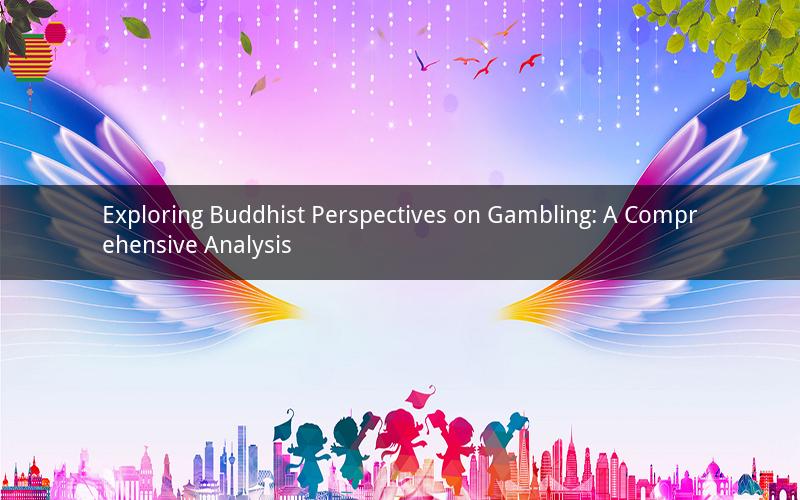
Introduction:
Gambling has been a topic of debate and controversy for centuries, with various religious and cultural beliefs shaping opinions on this practice. One such belief system is Buddhism, which offers a unique perspective on gambling. This article delves into the Buddhist viewpoint on gambling, examining its teachings and the implications for individuals who engage in this activity.
1. Buddhism and the Concept of Karma:
At the core of Buddhist philosophy is the concept of karma, which translates to the law of cause and effect. According to Buddhism, every action, including gambling, has consequences that will manifest in the future. This belief suggests that gambling can lead to negative outcomes, both in this life and in future rebirths.
2. The Dharma and the Teaching on Greed:
The Dharma, the teachings of the Buddha, emphasizes the importance of overcoming greed, one of the three poisons that lead to suffering. Gambling is often associated with greed, as it involves the desire for wealth and material gain. Buddhism teaches that greed can lead to addiction and spiritual downfall, thus discouraging its followers from engaging in gambling activities.
3. The Buddhist View on Materialism:
Buddhism teaches that attachment to material possessions and the pursuit of wealth can hinder spiritual progress. Gambling, which is often driven by the desire for wealth, is seen as a manifestation of materialism. By encouraging its followers to detach from material desires, Buddhism discourages gambling as a means to obtain wealth.
4. The Ethical Considerations of Gambling:
From an ethical standpoint, Buddhism emphasizes compassion, kindness, and the well-being of others. Gambling can lead to harm, not only for the individual but also for their family, friends, and society. The Buddhist perspective argues that engaging in gambling is unethical as it can cause suffering and financial distress to others.
5. The Role of Meditation and Mindfulness:
Buddhism promotes meditation and mindfulness as tools for cultivating inner peace and wisdom. These practices help individuals develop a deeper understanding of their desires and attachments, including the desire to gamble. By cultivating mindfulness, individuals can recognize the potential dangers of gambling and make more informed decisions.
6. The Buddhist Approach to Financial Well-being:
Instead of relying on gambling as a means to achieve financial stability, Buddhism encourages its followers to focus on ethical and sustainable ways of earning a living. This approach emphasizes hard work, honesty, and compassion in one's professional life, promoting a sense of fulfillment and well-being.
7. The Impact of Gambling on Buddhist Communities:
In some Buddhist communities, gambling has been a source of conflict and division. The negative consequences of gambling have led to the emergence of anti-gambling movements within these communities. These movements advocate for the implementation of policies and regulations that discourage gambling and promote the well-being of individuals.
8. The Role of Buddhist Monks and Temples:
Buddhist monks and temples often play a crucial role in educating their followers about the dangers of gambling. Through sermons, teachings, and community programs, they emphasize the importance of avoiding gambling and focusing on spiritual growth. Additionally, some temples have implemented initiatives to help individuals overcome gambling addiction.
9. The Buddhist Perspective on Legalization and Regulation:
While Buddhism does not explicitly support or oppose the legalization of gambling, it does emphasize the importance of regulation and responsible gaming. The Buddhist perspective suggests that governments should implement strict regulations to protect individuals from the potential harm caused by gambling.
10. Conclusion:
In conclusion, Buddhism offers a comprehensive perspective on gambling, emphasizing the negative consequences of this activity. The teachings of the Buddha encourage individuals to overcome greed, detach from material desires, and focus on spiritual growth. By promoting ethical behavior and mindfulness, Buddhism aims to create a society that values well-being and compassion.
Questions and Answers:
1. How does Buddhism view the concept of karma in relation to gambling?
Buddhism views karma as the law of cause and effect, suggesting that every action, including gambling, has consequences that will manifest in the future. Engaging in gambling can lead to negative outcomes, both in this life and in future rebirths.
2. What is the role of meditation and mindfulness in overcoming the desire to gamble?
Meditation and mindfulness help individuals develop a deeper understanding of their desires and attachments, including the desire to gamble. By cultivating mindfulness, individuals can recognize the potential dangers of gambling and make more informed decisions.
3. How does Buddhism encourage its followers to achieve financial stability?
Buddhism encourages its followers to focus on ethical and sustainable ways of earning a living, emphasizing hard work, honesty, and compassion in their professional lives. This approach promotes a sense of fulfillment and well-being.
4. What are the ethical considerations of gambling from a Buddhist perspective?
From a Buddhist perspective, gambling is considered unethical as it can cause suffering and financial distress to others. The emphasis on compassion, kindness, and the well-being of others discourages individuals from engaging in gambling activities.
5. How can Buddhist monks and temples contribute to reducing gambling within their communities?
Buddhist monks and temples can contribute to reducing gambling within their communities by educating followers about the dangers of gambling through sermons, teachings, and community programs. They can also implement initiatives to help individuals overcome gambling addiction.